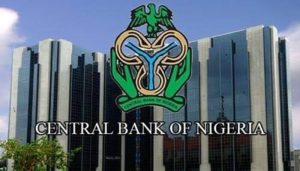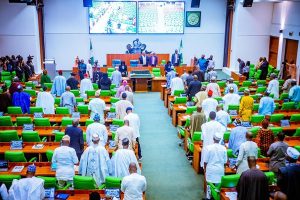
The House of Representatives has directed the Central Bank of Nigeria (CBN) to suspend its proposed retirement of over 1,000 employees, citing concerns over transparency, legality, and potential socio-economic repercussions. This directive, issued during Tuesday’s plenary, comes amid reports that the apex bank has earmarked over N50 billion for severance packages as part of its ongoing restructuring process under the Acting Governor’s leadership.
Parliamentary Probe Initiated
The House resolved to establish an ad hoc committee to investigate the planned mass retirement. The committee will assess the criteria, process, and legality of the exercise and scrutinize the payoff scheme to ensure proper utilization of funds and adherence to public service guidelines.
Kama Nkemkama, a lawmaker from Ebonyi State, sponsored the motion of urgent public importance that triggered the directive. According to him, the “sudden” decision raises red flags about its transparency and fairness, particularly regarding the selection criteria and adherence to due process.
“Such a significant decision has socio-economic implications for the affected individuals, their dependants, and the broader economy, potentially leading to increased unemployment and public dissatisfaction,” Nkemkama argued during the plenary.
Concerns Over Transparency and Accountability
The CBN’s payoff scheme, amounting to N50 billion, is intended to compensate the affected employees as part of its human resource reorganization strategy. However, lawmakers have expressed concerns about potential mismanagement and abuse of public funds.
Nkemkama emphasized the need for oversight, stating, “The reported payoff scheme may lack sufficient accountability mechanisms, posing risks of mismanagement in a sector vital to Nigeria’s financial stability.”

The lawmakers highlighted that the retirement includes senior management and directors, whose sudden departure could disrupt the CBN’s operations and weaken its institutional capacity.
Broader Implications
Beyond the potential administrative challenges, the planned retirements could have far-reaching socio-economic consequences. Lawmakers fear increased unemployment, especially given the sheer number of affected staff and their dependents, which could further exacerbate economic hardships across the country.
“The decision’s timing and the speed of its implementation have raised alarms about its potential to erode public trust and generate dissatisfaction,” another lawmaker added during the session.
Legal and Labour Concerns
The House also called on the Ministry of Labour and Employment to ensure the protection of the affected employees’ rights in accordance with Nigeria’s labour laws. Lawmakers stressed that any restructuring process must comply with established legal frameworks to prevent potential litigations or industrial actions that could further destabilize the financial sector.
Action Plan and Timeline
Speaker of the House Tajudeen Abbas, who presided over the session, instructed the ad hoc committee to engage with CBN leadership and other relevant stakeholders. The committee has four weeks to complete its investigation and report back to the House with recommendations.
The probe will focus on:
- The criteria used for selecting employees for retirement.
- The legality of the mass retirement under Nigeria’s public service rules.
- The accountability and oversight mechanisms for the N50 billion severance package.
- The broader economic and institutional impacts of the exercise.
CBN Under Scrutiny
The CBN has not officially responded to the House’s directive. However, the retirement plan is reportedly part of its restructuring efforts aimed at improving efficiency and equity within the organization. Critics argue that such a significant exercise requires careful planning and consultation to avoid unintended consequences.
This development adds to the growing list of challenges faced by the apex bank, which has been under increased scrutiny in recent months due to economic and monetary policy concerns. Analysts believe the outcome of this investigation could set a precedent for how public institutions handle large-scale restructuring initiatives in the future.
Looking Ahead
As the investigation unfolds, stakeholders will closely watch for any revelations about irregularities or procedural lapses in the planned retirement process. The House’s intervention underscores the importance of transparency and accountability in managing public institutions, particularly in sectors as critical as Nigeria’s financial system.
The outcome of this probe will likely shape public opinion and influence future policies on workforce management in the country.

